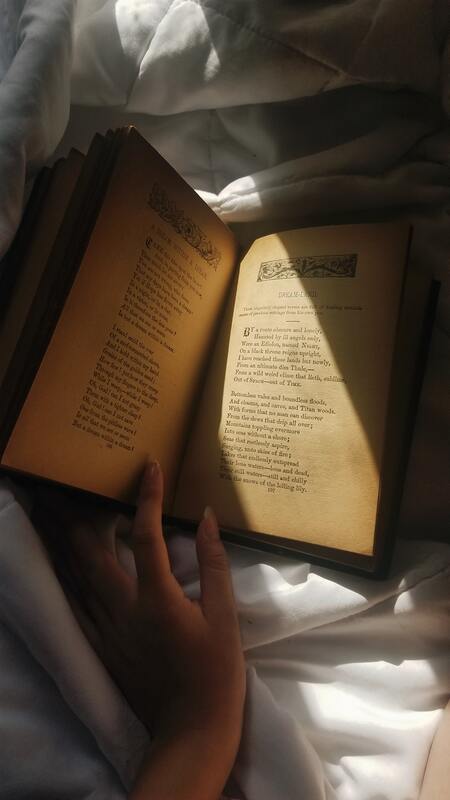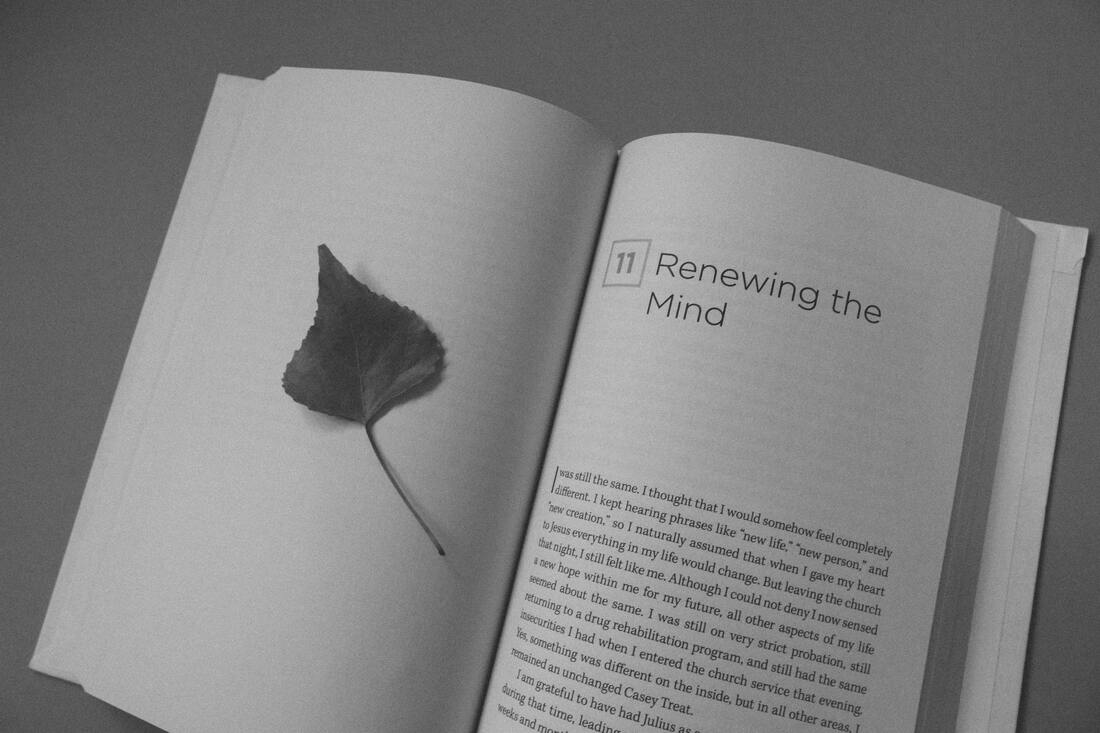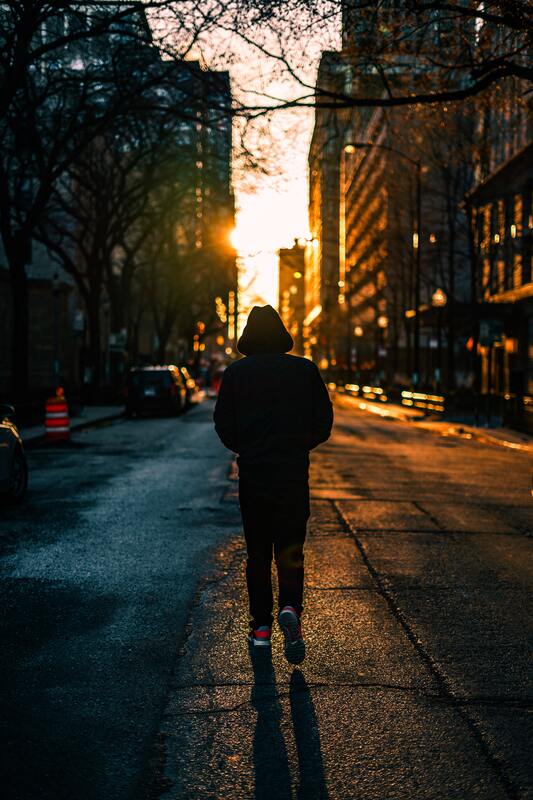|
The Breadcrumbs widget will appear here on the published site.
Today’s post is probably going to get hokey-pokey pretty fast, so this is your fair warning.
This phrase is on my mind: “Travel lightly and deeply.” I’m currently reading If You Feel too Much by Jamie Tworkowski, which is where I read these words for the first time. I couldn’t quite let them go once I’d read them. Not in a stuck-in-my-head kind of way, but in a I-need-this-idea way. Sometimes I need someone else’s words to sum up what I’m feeling before I can ever fully explain it myself. Sometimes, other people’s words are a bridge to understanding myself as much as my own words are a bridge to understanding myself. One of the reasons I write is to be understood and known. That’s always been the appeal to me, and that’s why I know I make so much more sense on paper. I use books to understand others, and I use writing to understand myself and be understood. When I speak audibly, I almost always fail at expression. It takes hours of thinking over a subject and rehearsing my own made up lines in my head to explain myself coherently to anyone else. During the last few years, I’ve put a lot less effort into that preparation because it’s exhausting. Do I really want to spend my life in that limbo when it’s so much easier just to make myself known on paper? Time is too precious. All of the above feels necessary to say, but it also feels so necessary to look at that sentence more closely. The line, “Travel lightly and deeply.” speaks to me, but it also sounds like a dream, something to aspire to. It’s hard to imagine that it could be something I start doing today without preparation, but there’s a part of me that thinks it’s supposed to be that simple. I have a tendency to over complicate things, and I have a suspicion that, while this phrase holds a lot of weight, it may not take that much dissecting to understand. Travel lightly: my first thought in response to these words is that I should give away all my belongs and only hold on to the few things that are near and dear to me, but I think this phrase means something much deeper (and who knows why I have this fascination with getting rid of things. That idea seems to glom onto any even remotely philosophical idea even have.) “Travel lightly” on a deeper level means “lay down your burdens.” Let it go. I struggle with this. I like to hold on to things, especially negative energy, and it’s so bad for me. I still do it. I hate the idea of laying down a thought before it’s fully processed. Before it is dissected, and understood, and mined for its value. But that thinking relies on a falsehood - you don’t learn from bad circumstances by dwelling on them. You learn by accepting them and staying open to learning. I’ve never once learned anything while I was angry about my situation and riling up my attitude every five minutes because I’m prideful and was born with a chip on my shoulder. Traveling lightly, in short, is about accepting life as it is while knowing that brightness and light are in even the bad places. Travel deeply: give importance to meaning. Whatever is meaningful and good to me is what I should dwell on. Dive in, and experience life in whatever way I think will uncover meaning for me. Obviously, I wouldn’t encourage anyone to do something damaging just for the sake of experience, but by definition we’re talking about making our lives better here, so maybe that goes without saying. That word “deeply” just strikes me so much as the meat of life, the purpose. I don’t believe any of us were made shallow. The spiritual part of us that I believe in creates too vast an expanse within ourselves for me to ever think anyone is incapable of depth. The deep, inner part of our lives is one of the most meaningful aspects of human life, and it’s where meaning itself is derived. We go into our deep, inner space when we think about what’s meaningful to us. We’re in our deep space when we’re acting out our passions and being intentional with our lives. That deep space is critical, and we should not neglect time spent with it. I want to learn to be alone with my thoughts a little more often. I want to learn that I don’t have to chase the next idea, the next thought, the next piece of media to consume just to make sure I’m moving forward or not bored. I don’t have to always be moving forward. There is a time and a place to sit, be quiet, and look back. This is the part when I realize the yin and yang of this whole idea: to go lightly and to go deeply through life are in some ways opposites, but married together they mean so much more. Their meanings rely on each other. You can’t truly go lightly without digging in and learning from the past because it’s necessary for acceptance, and there is no use in sitting down to contemplate the past if you don’t stand up and leave the burden on the floor, going lightly away from that place. A yin. A yang. These are just some thoughts that are on my mind today. I hope you can find some kind of meaning in them. I hope you’re encouraged or inspired or thoughtful after reading them, but no matter what, just know that your life matters and you can make it matter to you. Keep your perspective on the light and the deep and reach out to others when you need to. If you have thoughts, please share them in the comments, as always. Thanks for reading this far. The Blog Tags Widget will appear here on the published site.
Tags:
The Recommended Content Widget will appear here on the published site.
The Breadcrumbs widget will appear here on the published site.
5 Places to Submit your Poetry2/24/2018 It can be difficult to find literary journals to submit your writing when you're first starting out in the publishing process, and it can be just as hard when you've been submitting for a while and feel as if you've exhausted your options. I want to share a quick list of places you can send your poetry. These journals either have cheap reading fees or no fees at all and accept submissions year round. I've written posts like this before that focused on literary journals and magazines that accept submissions from multiple genres, but today, I wanted to do a post specifically for the poets out there looking for places to submit. Let me know in the comments where you've submitted your writing lately, or whether you're just starting the journey to publication! 1. Conduit Asks for 3-5 poems. Looking for, “… unpublished poetry that demonstrates originality, intelligence, courage, irreverence, and humanity.” $3 fee. Submissions accepted year-round. 2. The Same Send up to 6 poems. “We believe that the more things change, the more they stay the same…” Exclusively publishes female writers. $3 reading fee. Submit year-round. 3. Ellis Review 3-5 previously unpublished poems. “We believe the best poems often share several characteristics that can be summed up in intentionality.” No fee. Submit year-round. 4. Rascal Send up to 7 pieces, max 15 pages (accepts poetry and poetic prose). “We use the term ‘poetry’ loosely; if it's ‘poetic’ in any sense, try us.” No fee. Pays for accepted poems. Submit year-round with short response time. Virga Magazine Submit 3-5 poems. They, “… hope to publish poems that take some of the sky down to the page.” Exclusively publishes journal. $2 reading fee. Year-round reading period, bi-annual publication.
The Blog Tags Widget will appear here on the published site.
Tags:
The Recommended Content Widget will appear here on the published site.
The Breadcrumbs widget will appear here on the published site.
Note: I normally refrain from spoilers when I review books, but in this discussion, I share a few details that you may feel are too specific and spoil the end for you. This is just a heads up, so you can decide whether you want to continue reading this review or not. If you’ve already read the book, I’d love to hear your thoughts in the comments! Wink Poppy Midnight is a story about magic, loss, love, and what it means to be a hero. The narrative follows the three title characters – Wink, Poppy, and Midnight – during the summer before their senior year of high school. The whole story takes place over a matter of days. Wink, Poppy, and Midnight take turns recounting the events of that dangerous summer, and leave the reader guessing what will happen until the very end. The Good Stuff: The best image I can use to describe this book are the moving staircases in Harry Potter. You start out at the bottom of the staircase thinking you know where you’re going to end up, but by the time you get to the top, the destination has changed three times. You get off the staircase only to see that you must pick a new one to get where you want to go. Each time the story switches between the three narrators, it’s easy to tell who’s speaking because the voices are distinct. The author manages to maintain an overarching voice of the novel which gives it a feel of mystery and intrigue without compromising the individual voices of each main character. I found Midnights voice to be the more grounding of all the narrators. He is straight forward, honest with himself, and very in tune with his inner life. Wink and Poppy were also fun to read because they know themselves so well. Even though they are growing and changing throughout the novel, they are incredibly aware of their motives and desires, their faults and their strengths. Seeing such decisive, strong willed female characters was so refreshing. Wink brings so much magic to the story. She believes in the unconventional, and I love that her whimsical ideas mix with the dark and dangerous situations at the center of the novel to create a haunting, dreamlike story. Wink’s narration leaves room for the reader to wonder. Is she telling us the truth as she sees it or is she covering something up? Is she the damsel or the dragon? I love that she surprises me. Poppy is an unlikable character and honestly, a little scary, and still, I am drawn to her vivid voice as a narrator. Her deviant personality is clear in the first chapter and the evidence against her only builds. But, what I like so much about Poppy is how aware of herself she is. She knows she’s bad, and she eventually becomes aware of how others perceive her. The fact that the author uses Poppy’s actions and thoughts to reveal her moral character while still making her seems redeemable and capable of change at the very end is admirable to me as a fellow writer. The character development overall showed that the author put a lot of effort into fleshing out each character while writing, and I find that kind of commitment admirable. The Bad Stuff: Some people don’t like plot twists, and if I had read this book over several days instead of in just two, I might have gotten a little aggravated by the plot turning and twisting so much. It can be mentally exhausting for some people to follow a half dozen plot twists while others thrive off the ambiguity. It depends on your taste.
The plot slows down about two-thirds of the way through. Some readers may see this as a needed breather, but I saw it as too slow. Things happen in this part of the book, and I think it serves as an information period in which we’re meant to learn more about the side characters. I would have preferred it to move a little faster while providing the same information though. I don’t have many negative things to say about this book,. It may be a new favorite of mine. I had a wonderful weekend just immersing myself in this dreamy story. Overall, Wink Poppy Midnight was an awesome read for me. Mystery readers will like the intrigue and suspense of this novel, and fans of E. Lockhart’s We Were Liars will enjoy the strong character development and the way the story pieces itself together. Wink Poppy Midnight gets a strong 95% out of 100% or 5 out of 5 stars from me. The Blog Tags Widget will appear here on the published site.
Tags:
The Recommended Content Widget will appear here on the published site.
The Breadcrumbs widget will appear here on the published site.
I just got 2 rejection letters within five days of submitting to the journals. I received those letters within a week of each other.
Usually submission responses take several weeks or months to receive, so when you get a rejection letter within a few days, it can catch you off guard. I worked on my university’s lit journal for a semester, so I know that it’s easy to quickly read a submission and make a quick decision about whether it belongs in your journal or not, but it still stings (a lot). There’s nothing menacing about it. The piece works or it doesn’t. Really the only reason my teammates and I ever deliberated whether we should accept or reject a piece was because there were so many of us and doubt creeps into the decision making process when so many people with different tastes are in the same room. At the end of the day, though, I knew the pieces were either right for our journal or they weren’t. There was only so much space in our print version, so there wasn’t room to accept poems that fell in the grey area. That’s not to say that we only received a few great poems to put in the journal. We received a ton of great pieces, but they didn’t always fit the theme and feel of our journal. Recently, I read Big Magic by Elizabeth Gilbert, and there’s a chapter that focuses on how Gilbert dealt with rejection, especially in her early years of writing. She describes using a “boomerang” technique to deal with rejections, which I have discussed in previous posts. She got the rejection letter and immediately took her manuscript out, stuck it in another envelop and sent it out to a different magazine. She did it automatically. Almost without thinking. Later in the chapter, she encourages writers to do what they need to do to deal with rejection (let themselves feel sad for a little while, get angry, whatever), but she encourages writers not to waste too much time before getting back to work, either by revising or sending their work right back out into the universe. I’m trying to adopt this method, but so far it’s been a little more difficult than I thought. Finding places to submit to takes a while. You want to find a place that you’ll be happy to be published with and not just any old place that’s open for submissions. It also helps if your work just seems right for the magazine, either because you’ve looked into what they’ve published over time and it seems up your ally or you’ve read their about page and really feel pulled toward their publication. That process takes time, but it’s meaningful. I’ve never liked the idea of sending my work out at random where it could potentially be accepted, but not really appreciated or understood. Granted, it’s hard to know which places are going to treat your work well upfront, but knowing I have the publisher’s respect is important to me. Important in an “I’m not just random content for you to throw up on your website,” way. For that reason, I’ve been a little slow to send my work back out, but I am committed to continue. I really believe that 98% of the work you send out is going to be rejected whether it’s good or not (because, again, there’s only so much space), but you keep going so that you can see the 2% that does get published. It’s not about accolades or recognition for me, (although to each his own). It’s honestly about having the chance to tell people a story. Storytelling, whether the medium be fiction, poetry, or nonfiction, is an art form I respect deeply and want to engage in. That’s why I keep writing despite the rejection letters, despite the negative workshop comments, despite people in my life just not getting it. I still want to be a writer, see where my stories take me, and see what readers the stories pick up along the way to enjoy the ride with me. We say that writing is so solitary, so lonely, but to me writing is all about people. You share something you worked hard on, and other people engage with your art whether it’s as an editor, or a reader of a journal, or someone reading this blog. Rejection may sting, but writing doesn’t. As difficult as starting out as a writer is, I hardly feel alone. I hope you don’t either. Feel free to leave your thoughts in the comments. Let’s encourage each other. The Blog Tags Widget will appear here on the published site.
Tags:
The Recommended Content Widget will appear here on the published site.
The Breadcrumbs widget will appear here on the published site.
Sometimes you must create inspiration instead of waiting for it to show up on your doorstep. I find that I am most inspired after I start writing. If I wait until I’m feeling motivated or mused, I’ll sit in front of my computer for most of the day and not write a word. I still have bursts of creativity and moments of intense motivation at random, but for the most part inspiration finds me when I sit down and get started without it.
Being a writer sometimes means writing on demand. You have deadlines, and you have to meet them if you’re going to get paid and published. That doesn’t mean that creativity goes out the window or you have to write a perfect first draft, but you do need write something and keep working on it and if you want to publish, eventually send it out into the world. Any career or even a hobby requires follow through. Being a writer and wanting to write are not one in the same. The difference between “wanting to be” and “being” is action. Write the thing you want to write even if you aren’t feeling creative. First drafts are supposed to be messy. Just get the words out. I’ve always heard getting started is the hardest part. That observation is true of a lot of things, but I find that it’s still very true for my writing. The most difficult task is opening my laptop and clicking on the MS Word app. I don’t know why. Maybe I’m too used to passive entertainment and switching gears is difficult. Maybe I forget that the piece isn’t going to write itself. I’m not sure honestly. What I do know is the difference between a piece being written and a piece not being written is action. I’m realizing that I need to focus a little more on my own follow through in the coming weeks. It’s been difficult between having multiple jobs and submitting my work to journals to also force myself to get started on all the creative projects bouncing around in my head. I’m determined to make it all happen, though, because I love my creative work. It energizes me and makes me happy, and what better way to spend my time than pursuing more of that? The Blog Tags Widget will appear here on the published site.
Tags:
The Recommended Content Widget will appear here on the published site.
The Breadcrumbs widget will appear here on the published site.
Dark Matter by Blake Crouch is a thriller/science fiction novel about destiny, the multiverse, and loss. The novel begins with Jason Dessen’s simple choice to leave the house on a Thursday night but ends with his entire life permanently changed. Readers follow Jason on the hardest journey he’s ever had to take; one that will force him to make hard decisions and confront the many alternate realities at his fingertips. The Good Stuff Dark Matter certainly has a lot of ideas for readers to unpack by the end of the novel. My biggest take away is how important choices are in each of our lives. The multiverse is a concept that relies on choice. The premise is that every choice you are faced with is a fork in the road and each side of the fork branches off into its own possible reality and each possible reality forks off into thousands of other choices and realities. I’d heard about the multiverse concept before, but this was the first time I read a thriller based on that premise. The theories surrounding the concept were fun to read about. Crouch has a way of making the theories accessible and intriguing which I really appreciated because it felt like I was getting much more than just the story about Jason. The theme of loss is also very strong in Dark Matter, and for me, that was the most emotionally engaging part of the novel. Not only are the experiences of loss painful to read about, the nature of the story creates a plot in which loss is experienced over and over again in different ways. I appreciated how Blake Crouch was able to make so many moving parts fit together and then create a functioning machine out of them. The Bad Stuff I was really frustrated with the character development in this story. Daniela (Jason’s wife) comes off as a very stereotypical woman and a flat character. She’s quick to get emotional, doesn’t seem to have her own motives as a person, and for some reason, she pushes Jason out of the house in the middle of family night which seemed very odd to me and unrealistic. In general, the women in this book seem to be ploys for emotional resonance used against the reader that just end up not hitting the mark for me. I also saw a lack of character development in Jason at the beginning of the novel, but I felt that his desires deepened, and his abilities became more defined as the novel went on which made him more of a well rounded character.
There were a couple of plot points that seemed too conventional for this kind of story and weren’t as engaging as I would have liked them to be. Without going into spoilers, I’ll say the scenarios in which Jason interacts with the antagonists sometimes feel as if they’re being set up by the author to look like big obstacles but soon, those obstacles are wrapped up rather quickly and smoothly. It felt a little too contrived for me. Some of the dialogue pulled me out of the story for the same reason. It didn’t feel authentic and seemed like easy fixes to the conflicts of the story. *** Overall, Dark Matter is an impressive novel given all that it sets out to do. Several of the themes really hit home, and readers can empathize with the overwhelming decisions Jason has to face. For avid readers of plot focused fiction, Dark Matter will stand out for it’s complex story and heavy subject material, but for character focused readers the lack of development may be a little difficult to stick with for the whole 300+ pages. To each his own. For me, Dark Matter is a solid 85 out of 100% or 4 out of 5 stars. The Blog Tags Widget will appear here on the published site.
Tags:
The Recommended Content Widget will appear here on the published site.
|
AuthorPoet. Reader. Lifelong Student. Archives
February 2023
Categories
All
|
For Readers & Writers
We found
results for you
We've got nothin'!







2/25/2018
0 Comments